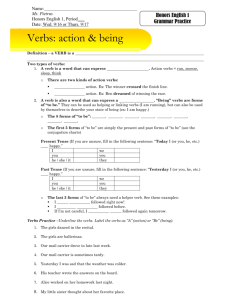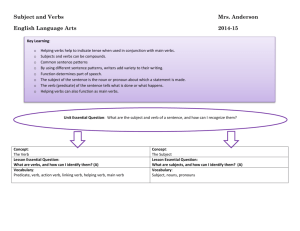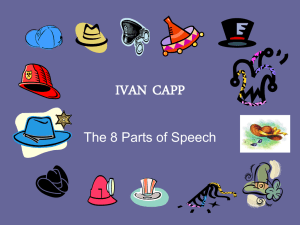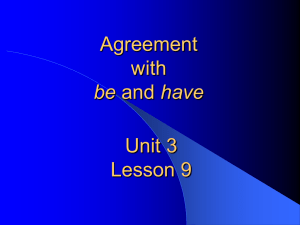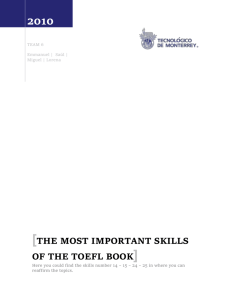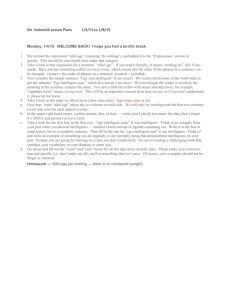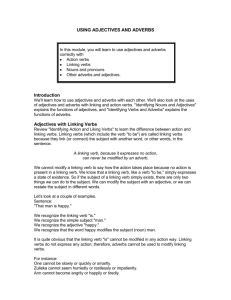Grammar - adjectives, verbs, & adverbs
advertisement
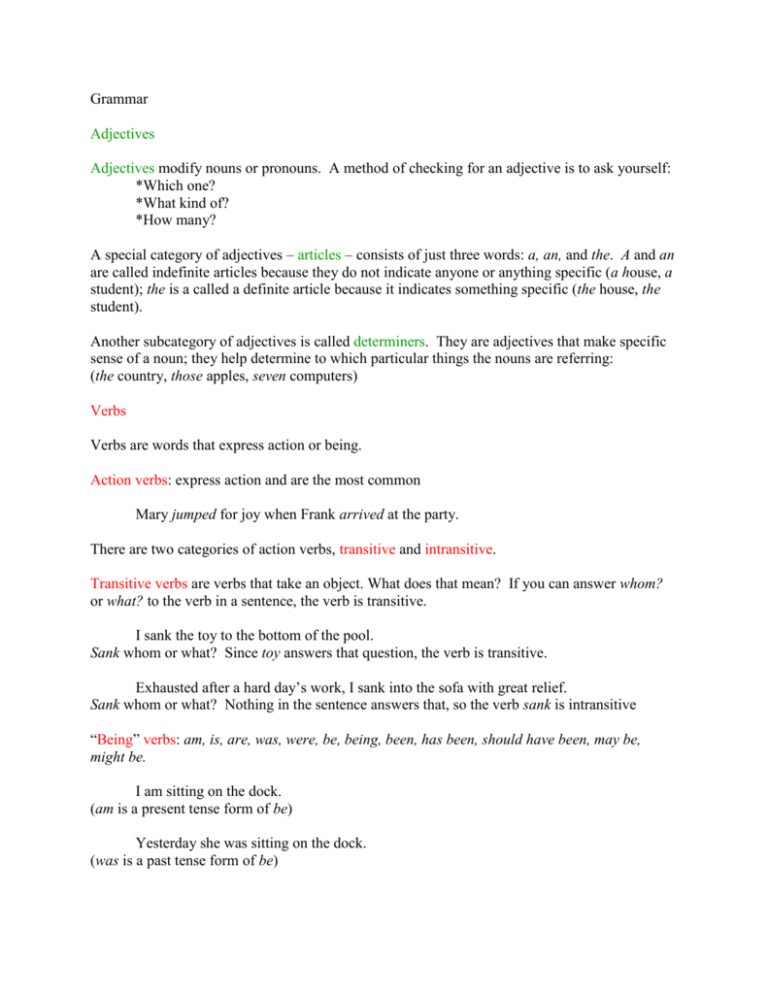
Grammar Adjectives Adjectives modify nouns or pronouns. A method of checking for an adjective is to ask yourself: *Which one? *What kind of? *How many? A special category of adjectives – articles – consists of just three words: a, an, and the. A and an are called indefinite articles because they do not indicate anyone or anything specific (a house, a student); the is a called a definite article because it indicates something specific (the house, the student). Another subcategory of adjectives is called determiners. They are adjectives that make specific sense of a noun; they help determine to which particular things the nouns are referring: (the country, those apples, seven computers) Verbs Verbs are words that express action or being. Action verbs: express action and are the most common Mary jumped for joy when Frank arrived at the party. There are two categories of action verbs, transitive and intransitive. Transitive verbs are verbs that take an object. What does that mean? If you can answer whom? or what? to the verb in a sentence, the verb is transitive. I sank the toy to the bottom of the pool. Sank whom or what? Since toy answers that question, the verb is transitive. Exhausted after a hard day’s work, I sank into the sofa with great relief. Sank whom or what? Nothing in the sentence answers that, so the verb sank is intransitive “Being” verbs: am, is, are, was, were, be, being, been, has been, should have been, may be, might be. I am sitting on the dock. (am is a present tense form of be) Yesterday she was sitting on the dock. (was is a past tense form of be) Adverbs An adverb is a word that modifies (describes; gives more information about) a verb, adjective or other adverb. Yesterday the quite relieved soldier very quickly ran out of the woods when he saw his comrade frantically waving at him. The adverbs in the above sentence are italicized: Yesterday modifies the verb ‘ran;’ quite modifies the adjective ‘relieved;’ very modifies the adverb ‘quickly;’ quickly modifies the verb ‘ran;’ and frantically modifies the verb ‘waving.’ Ask yourself if the word you’re wondering about answers one of these questions: How? Where? How often? To what extent? When? Why? How much? Under what circumstances? In the example above, yesterday answers ‘when?’; quite answers the question ‘to what extent?’;very answers the question ‘to what extent?’ or ‘how much?’’quickly answers the question ‘how?’ or ‘to what extent?’; and frantically answers the question ‘how?’

